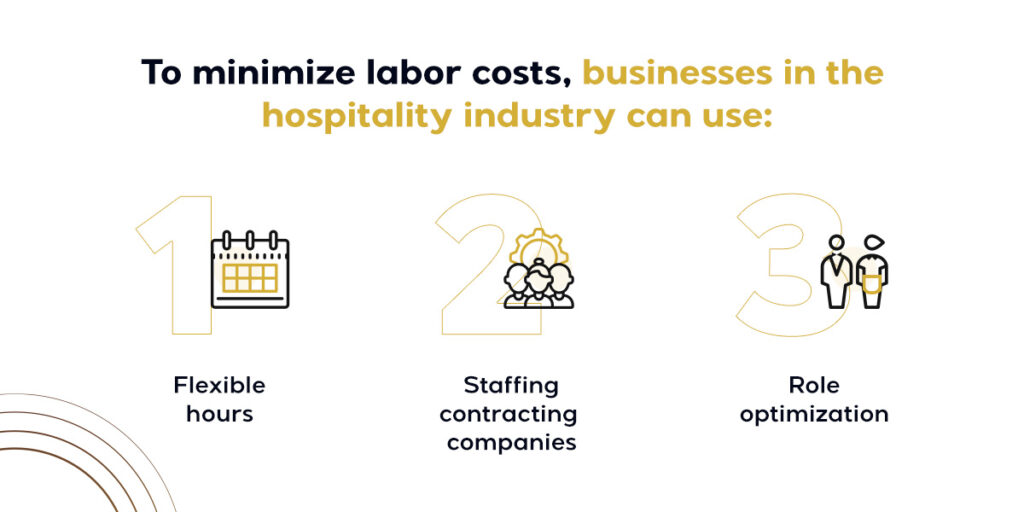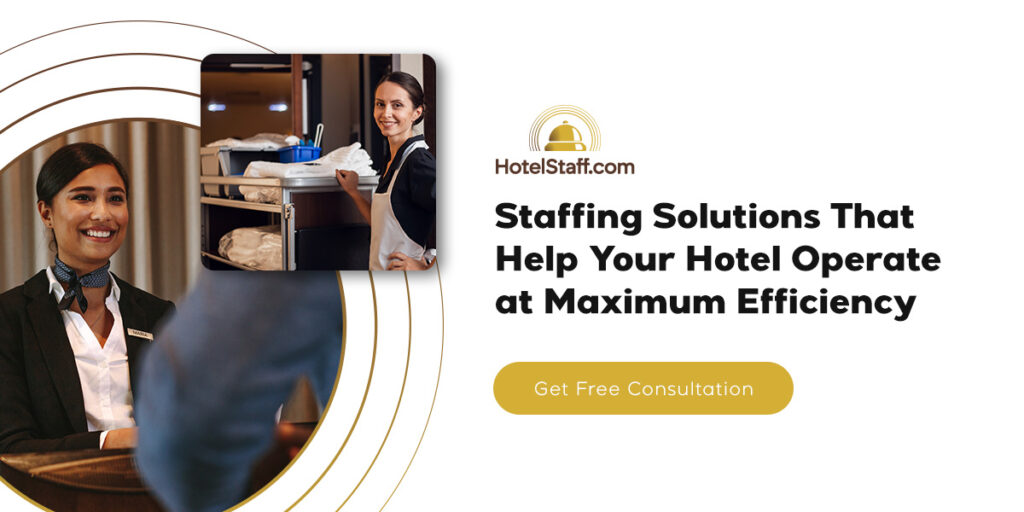Since the COVID-19 pandemic, inflation has hit virtually every business. Peaking at 9% in June 2022, inflation in the U.S. has now dropped back down to 2.4% as of March 2025, similar to prepandemic levels.
However, the economic fallout of this period of increased inflation is still being felt. The hospitality industry, in particular, is still feeling the effects. One of the hardest hit industries during the pandemic, businesses in the hospitality sector are still facing higher prices than they have in the past.
While the pandemic was unprecedented, the effect of inflation on the hospitality industry is always clear, particularly when it’s high. Here’s how inflation affects the hospitality industry.
The Rising Costs in Hospitality
Hospitality businesses face many inescapable costs. When these costs rise, companies have very little power to avoid or even reduce them.
Over the last few years, businesses such as hotels and restaurants have been massively affected by rising costs caused by high inflation. Here are some typical hospitality costs and how they’re affected by inflation.
Utility Bills
The utilities industry has a far-reaching impact on just about every other industry. When the cost of utilities goes up, the cost of just about everything else goes up, too, which could cause a rise in inflation. Conversely, when inflation is high, the cost of utilities is likely to rise, too. Whatever the initial cause, utility costs closely correlate to inflation levels.
When utility costs rise, the hospitality sector always feels the sting. Restaurants tend to operate out of large properties that often accommodate hundreds of people, even if it is just for a few hours during a dinner service. Hotels are hit twice as hard because they tend to be larger buildings with more occupants using their utilities at all hours.
To offset the rising utility costs that come with inflation, businesses in the hospitality industry can:
- Reduce their water usage: Consider switching providers, installing low-flow faucets, and using low-flow toilets and showers.
- Lower electricity usage: Switch from AC to fans, use LED lights, and look for other greener alternatives.
- Plan around peak hours: Switch off lights that aren’t needed, only turn on appliances when they’re being used, and set timers where possible.
- Audit their energy usage: Carrying out an energy audit can reduce your energy usage.
- Use smart tech: Modern HVAC systems, improved boiler switches and smart meters can all cut energy usage.
Labor Costs
Higher wages are another factor that can push inflation higher, which effectively means that when inflation is high, labor costs for the hospitality industry are too. With labor costs often making up over half of a hotel’s operating costs, this rise in labor costs plays a big part in how inflation affects the hotel industry.
Once wages go up, they rarely go down. Despite inflation returning close to its pre-pandemic levels, wages have remained high. As of June 2025, the average hourly rate for hospitality workers was $22.78, 26% higher than the peak rates of the pandemic.

To minimize labor costs, businesses in the hospitality industry can use:
- Flexible hours: Consistent staff hours can often mean you’re overstaffed. Flexible working patterns mean you have the staff you need, when you need them.
- Staffing contracting companies: Staffing companies can help you cut recruitment costs, minimize the time it takes to fill a position, and ensure you hire an experienced staff member.
- Role optimization: Evaluate the day-to-day tasks of your staff, and identify ways they can become more efficient.
Goods and Services
The rising cost of goods like food and housekeeping supplies is one of the main causes of economic challenges in the hospitality industry. The cost of these everyday necessities is also closely linked to inflation rates, so when one rises, so does the other.
Thanks to the increased cost of labor, any needed services, such as maintenance or repair work, are likely to cost more, too. For businesses whose premises are a big selling point to their customers and vital to their operations, keeping their property in top condition is vital.
Steps you can take to cut the costs of goods and services for your hospitality business are:
- Buy second-hand: While this isn’t always possible, you may be able to find things like furniture and fixtures second-hand.
- Change suppliers: While rising costs are likely to affect all suppliers, you still might be able to find a less expensive supplier than your current one.
- Cut waste: Assess how much waste you’re producing, and find ways to reduce this by changing your purchasing and operating habits.
Insurance
Inflation directly affects the cost of insurance policies. As everything else rises in price, the amount paid out in claims has increased, too. Ultimately, this means that the insurance sector has to increase the prices for its customers.
Businesses in the hospitality sector are inevitably hit by this thanks to their need for a wide range of insurance policies, such as:
- Property insurance
- Liability insurance
- Business interruption insurance
- Workers’ liability insurance
- Cyber liability insurance
- Loss of license insurance
To reduce your insurance costs, shop around before renewing your policy to see if you can get a better deal elsewhere.
Do Consumers Spend Less When Inflation Is High?
As a general rule, when inflation is high, consumers spend less. Their money has less purchasing power, meaning they often save their funds for the necessities and cut down on even those expenses when possible. Many consumers will see taking a vacation or going out for a meal as an unnecessary expense, meaning the hospitality industry will invariably suffer when inflation is high.
Even after periods of high inflation, when consumers begin to feel more comfortable spending again, that doesn’t guarantee that profits for hospitality businesses will increase. Despite guest spending hitting an all-time high in 2024, increasing cost rises for hotels meant that their profit margins declined in the same year.
Staffing Solutions That Help Your Hotel Operate at Maximum Efficiency
Inflation massively affects the costs that businesses in the hospitality industry face, but that doesn’t mean there aren’t steps you can take to reduce these costs.
At HotelStaff.com, we help hotels get experienced and professional staff members whenever needed. Our staffing solutions mean you have less time with unfilled positions and cut the time it takes to find the right person, allowing your hotel to operate at maximum efficiency.
If you want to find out how we can help with your hotel’s staffing solution, request a free consultation today.





